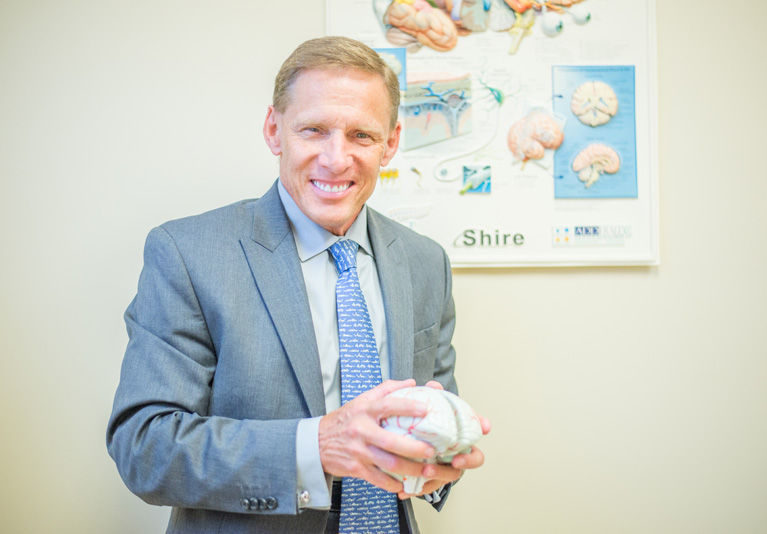
Until very recently, conventional wisdom held that the human body has been completely mapped, with no unknown structures remaining, but a team from the University of Virginia (UVa) may be disproving that; they have found a previously undiscovered connection between the brain and the immune system.
Dr. S. James Shafer, a Vero Beach neurologist, says this finding is very interesting and potentially breakthrough. “We already know how essential the immune system is,” he says. “It protects us through constant surveillance. It’s what allows us to be on this earth. This study tells us that it could be involved in even more diseases than we’re currently aware of.”
The UVa research, which was published just a few weeks ago in the journal Nature, reports on the discovery of a brain/immune system link in mice, but early experiments suggest that it also exists in people. To those of us who aren’t research scientists, this may sound like no big deal, but the discovery could lead to new explanations about diseases that affect or involve the brain, such as Alzheimer’s disease. This could eventually to new treatment approaches.
The UVa researchers discovered what are called meningeal lymphatic vessels that connect the brain to the peripheral immune system. PhD Jonathan Kipnis, a professor in UVa’s Department of Neuroscience, says his team’s discovery “changes entirely the way we perceive the neuro-immune interaction. We always perceived it before as something esoteric that can’t be studied. But now we can ask mechanistic questions.”
It is estimated that more than 5 million Americans may have Alzheimer’s; it is the third leading cause of death among older people, behind heart disease and cancer. It was discovered in 1906 by Alois Alzheimer, a German scientist, neurologist, and psychiatrist. He noticed cognitive and behavioral changes in one of his patients; after her death, he examined her brain and found many abnormal clumps and tangled bundles of fibers.
These clumps and tangles are now known to be one of the main characteristics of Alzheimer’s; they are caused, at least in part, by a build-up of protein in the brain. Dr. Kipnis suggests the clumps may be accumulating because they are not being efficiently removed by the lymphatic vessels.
The recently-discovered lymphatic vessels were very well hidden by blood vessels, which is why they escaped detection for so long. They were finally discovered by a postdoctoral scholar named Antoine Louveau. He was counting the membranes covering the brains of mice when he noticed a vessel-like pattern in the immune cells he was examining. A test was then conducted which confirmed that that these were in fact lymphatic vessels – the previously unknown connection between the brain and immune system.
Other recent research, from the University of Southampton in the United Kingdom and elsewhere, shows that Alzheimer’s patients who suffered from frequent colds, coughs, and other infections (signs of a weakened immune system) had more severe cognitive decline over a defined period of time than those with low infection level – another possible link between the brain and the immune system.
It has been known for a while that people with Type 1 diabetes, an autoimmune disorder in which the body makes little or no insulin, are 65 percent more likely to develop dementia. However, the reasons for those results were not clear; there was no evidence that there was any physiological connection. Dr. Kipnis says that the diabetes could be impairing the brain’s ability to clear away the toxic proteins that are characteristic of the condition; the findings from the UVa team could help investigate the true nature of any link.
“We believe that for every neurological disease that has an immune component to it, these vessels may play a major role,” says Dr. Kipnis.
Dr. Shafer says if this new anatomy exists, it may give us a more straightforward way to treat disorders involving the brain or immune system. He feels certain this study will lead to a whole new realm of research. “It’s science focused on genetics. Very exciting stuff.”
Dr. Shafer’s practice is part of Vero Orthopaedics and Vero Neurology, 1155 35th Lane, #100; 772-569-7039.



